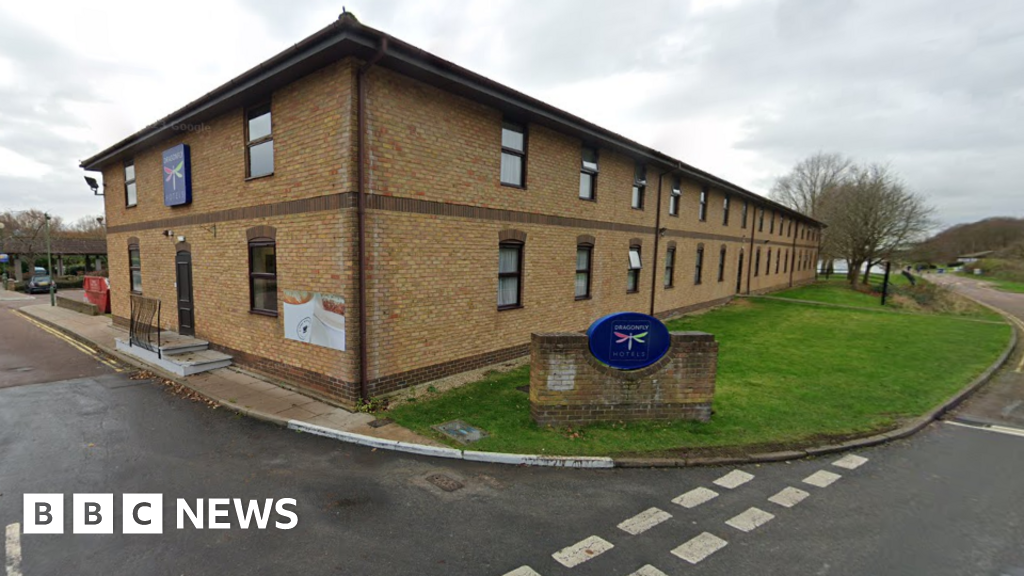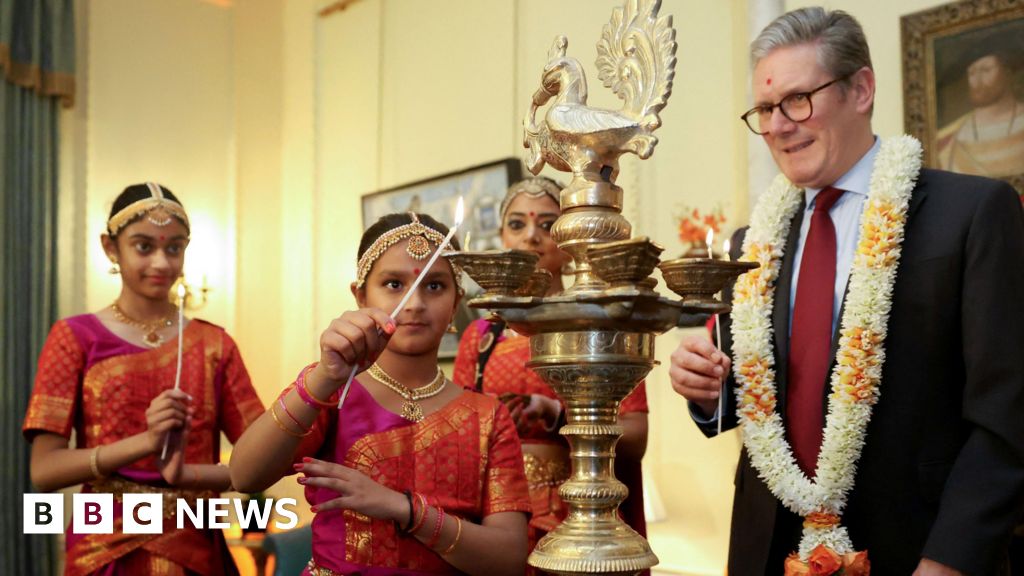ARTICLE AD BOX
Jacob Rees-Mogg: "Douglas Ross has always been a lightweight figure."
A senior UK government minister has dismissed the Scottish Conservative leader Douglas Ross as a "lightweight" within the party, after he called for the prime minister's resignation.
Mr Ross said Boris Johnson should step down after he admitted attending a Downing Street party during lockdown.
Jacob Rees-Mogg said Mr Ross was a "lightweight figure", and the PM had the support of more "important" MPs.
He said this included the Scottish secretary, Alister Jack.
Other cabinet members including deputy PM Dominic Raab have also rallied round Mr Johnson.
Ministers have urged MPs to wait for the outcome of an investigation by senior civil servant Sue Gray into alleged Covid-rule breaking at Downing Street parties, which they say will be published shortly.
Speaking to the BBC Newsnight programme, Mr Rees-Mogg, the Leader of the House of Commons, said Mr Ross "has always been quite a lightweight figure".
He earlier told LBC Radio that Mr Ross had never supported Boris Johnson.
Image source, Getty Images
Image caption,Mr Ross, pictured with Mr Johnson in 2019, said the PM's position was no longer tenable
Mr Ross, who is both an MP and an MSP, did back Mr Johnson in the final round of the Tory leadership contest.
But he later resigned from his government over the PM's former adviser, Dominic Cummings, driving 260 miles from his London home to his parents' farm at the height of lockdown in March 2020.
Mr Rees-Mogg said that the Scottish secretary, Alister Jack - who he described as "a much more substantial and important figure" - had backed the prime minister.
Mr Jack has confirmed to the BBC that he was "100% supportive" of the prime minister.
The BBC understands Mr Jack had tried to persuade the Mr Ross to hold his fire.
Several media outlets also reported that another senior cabinet minister, Michael Gove, dismissed Mr Ross.
When asked by Tory MPs for his reaction to Mr Ross calling for the PM's resignation, Mr Gove reportedly said: "My instant response is he's in Elgin and the national Tory leader is in London".
"I offer my heartfelt apologies": Watch Boris Johnson admit to attending the No 10 party in May 2020
On Wednesday, Mr Johnson admitted attending the "bring your own bottle" garden party, which took place on 20 May 2020 at the height of the first lockdown.
He apologised for the gathering in the Downing Street garden, which he said he had attended for about 25 minutes to "thank groups of staff" for their hard work during the pandemic.
But he said he had "believed implicitly that this was a work event" - which he claimed was "technically" within the rules that were in place at the time.
The drinks gathering was described in the invitation as being "socially distanced", and was attended by about 30 people who were invited to bring their own alcohol.
Food, including sausage rolls and crisps, was reportedly laid out on trestle tables.
Mr Ross - who is MP for Moray as well as an MSP for the Highlands and Islands - said the prime minister's position was "no longer tenable".
The Scottish Tory leader said he had a "difficult conversation" with Mr Johnson on Wednesday afternoon, and that he would write to the 1922 Committee - which organises Tory leadership contests - to register his lack of confidence in his leadership.
'He does need to resign'
Mr Ross said he believed Mr Johnson was "genuine" in his apology, but that "it was wrong to attend the event".
He added: "Crucially for me he said that in hindsight if he had his time again he would have done things differently
"To me that is an acceptance from the prime minister that he did wrong, and therefore to be consistent with what I've said before I don't believe his position as prime minister and leader of the Conservative Party is tenable and he does need to resign."
The vast majority of Scottish Conservative MSPs quickly backed Mr Ross, with Murdo Fraser saying that the prime minister had "lost public trust, and in the interests of the country and the Conservative Party he should step down".
Mr Ross's predecessor as Tory leader, Jackson Carlaw, said Mr Johnson had "lost the confidence of the country", while another former leader, Baroness Ruth Davidson, said Mr Ross had made "the right call".
This is an extraordinary row for extraordinary times.
To start with, it gives the SNP endless ammunition against the Scottish Tories - they are still repeating former Scottish Labour leader Johann Lamont's "branch office" line almost a decade later, and Jacob Rees Mogg's dig may run for just as long.
The more significant impact may be within the Conservative Party itself, however, given Tory MPs are the ones who hold Mr Johnson's future in their hands. And open blue-on-blue attacks may only serve to drive more of wedge between the Tory leadership in London and MPs in other parts of the country.
When Michael Gove dismisses Mr Ross as being "in Elgin", it is unlikely to play well with already-angry members in northern English seats, whose constituents feel just as distant from "the national Tory leader in London" as those in Moray.
Members of the Conservative and Unionist party are unlikely to relishing a spat between its Scottish and UK operations. They are also unlikely to prioritise Mr Johnson's future over that of the United Kingdom.
With all respect to the SNP's Westminster leader Ian Blackford, Tory MPs are unlikely to have a serious think when he demands they turn on Boris Johnson. But they will be listening to the likes of Mr Gove and Mr Rees-Mogg - and the prime minister's allies may have done just as much damage as his opponents.
Former Scottish Conservative MSP and constitutional lawyer Prof Adam Tomkins told BBC's Good Morning Scotland programme that Mr Rees-Mogg was wrong and had made the remarks as part of a "save Boris" campaign.
He added: "Douglas Ross is a man of steel and a man of principle, he was the only government minister to resign over the Dominic Cummings affair and he is now the only Conservative leader to call for the resignation of the UK Conservative leader.
"I think he's got this absolutely right, the prime minister's position is untenable."
Prof Tomkins said if Boris Johnson stays in his job then the Scottish Conservatives need to ask "deep questions" about the association they want to have with their counterparts south of the Border.
Sir John Curtice, professor of politics at Strathclyde University, told the same programme that the Tories are "at risk of beginning to implode themselves as a result of the internal fighting in the party" with the upcoming local elections key for the Scottish Conservatives.
He added: "The party knows it is on a sticky wicket, it certainly doesn't want to be fighting an election against the backdrop of party that has lost its popularity.
"But that, at the moment, is the prospect it faces - which potentially helps to explain why Tory MSPs have been the first out of the traps to say the prime minister must go."s

 2 years ago
25
2 years ago
25








 English (US)
English (US)